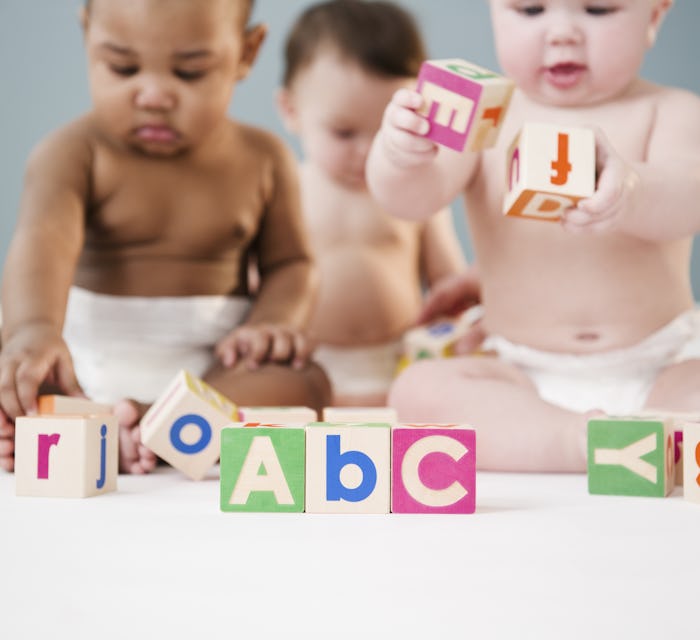Life

Babies Communicate With Each Other — Here's How
It's long been known that babies are masters at reading the emotions of their parents and people close to them. But do their skills go beyond reading? Specifically, can babies communicate with each other? The thought of babies having babbling conversations with each other is almost too cute to handle, but when it comes to our baby's development, parents generally don't give their littles enough credit. And, it turns out, the same is true when it comes to how well they can communicate.
One study from Brigham Young University found that babies as young as five months old can mimic and match their peer's vocalizations and expressions. In the study, 40 infants were placed in front of two different monitors — one displaying a happy baby, the other a sad, frowning baby. The babies then listened to audio of either sad or happy babies, and were able to match the sound with the facial expression by looking for longer amounts of time at the correct image.
The study concluded that babies are much more intuitive than we often give them credit for, even being able to read emotions of other babies, adults, and even some animals, and classical music.
It turns out that your baby may prefer the sound of other baby's voices to the sound of an adult's. According to a piece from The Huffington Post, researchers found that babies showed preference towards audio of another baby, over sounds from an adult woman. This makes sense, and on an intuitive level, may be why we instinctively use "baby voices" when talking to our little ones.
The famous video of a set of twins' conversation might have gone viral for it's overwhelming level of cuteness, but it proves the point of these studies: that babies can in fact communicate with each other long before they can form actual sentences.